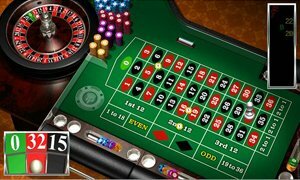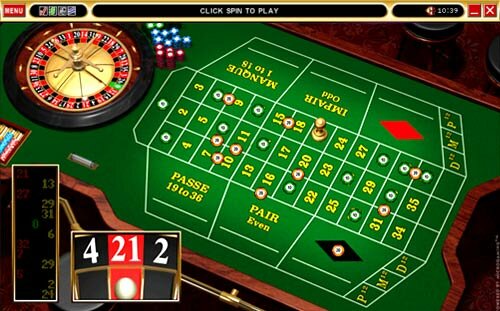
The game is very simple and does not require special calculations and computations, it is different from other systems of its advanced performance and simplicity, all you need is just observation and luck of course.
The essence of the system 222
In this system, rates can be made on an equal chance:
"Even number" or "odd";
"more or less";
"Black" or "red."
The best option - the last, as the red and black numbers are evenly distributed. Even a beginner can use the system 222 after a few test spins (roulette starts). The system is characterized by good efficiency.
But before you start the game you need to watch a few roulette starts, in order to make the right bet. If you roll a "black" in his first two starts, the following two should be put on "red".

This system is at first glance seems quite complicated, but if you carefully to understand the rules, difficulties in the game does not arise.
This system is suitable for playing in a real casino, because that is where the dealer has to start with each roulette change direction - then to the right side, then the left.
This strategy requires a conditional division of the roulette wheel into three parts - right sector (12 numbers), the left sector (12 numbers) and the so-called the same sector (13 numbers). For each dropped out number the sector is changing.
If you choose this system, you have to bet on every number of the sector, taking into account the number of which fell in the previous roulette starts.

Lucky Seven - effective and simple betting system that can be used in roulette. Its main advantage - a relatively small bankroll to play. In accordance with this strategy, you need money, enough for 24 bids. Thus, making a $ 1 bet, we must have with them at least $ 24. Another rule of this system is to bet on an equal amount (black / red, odd / even). This approach ensures that you will increase your winnings each time a positive outcome of the party.
The essence of "Lucky Seven" of the system is quite accessible - you bet, win and your next bet will be as follows: the current rate plus 0.5 your current rate. If the bid is not divisible by two without a remainder, then rounded up.
For example, you have won 20 units. If you win your next bet: the current rate (20 units) + half the current rate (20/2 = 10 units) = 30 units. If you lose you go back to the original rate.


 Craps is a very interesting dice game that is offered in any self-respecting gambling establishment. Craps is one of the most popular casino games in the USA.
Craps is a very interesting dice game that is offered in any self-respecting gambling establishment. Craps is one of the most popular casino games in the USA. 




